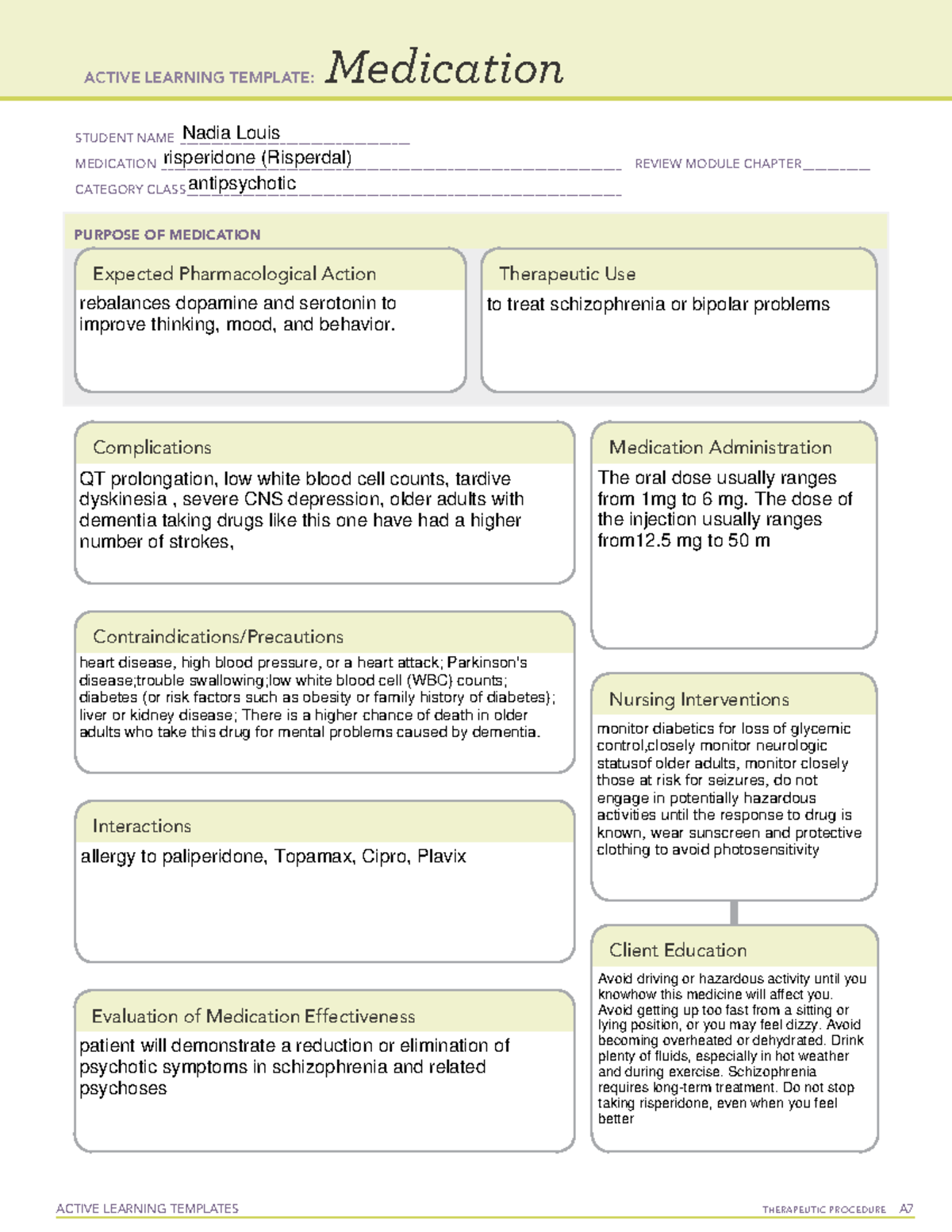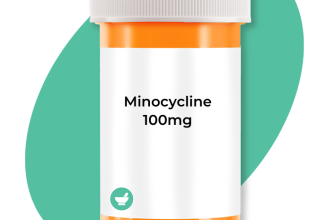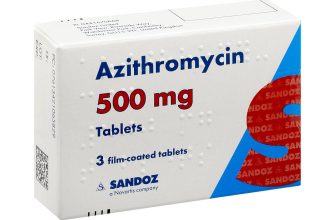Regularly monitor your weight. Risperidone can cause weight gain, so tracking your weight helps you and your doctor manage this side effect. Aim for a balanced diet and regular exercise to mitigate this. Report any significant weight changes immediately.
Pay close attention to potential side effects like drowsiness, dizziness, or constipation. These are common, but manageable. Drowsiness might improve over time. For dizziness, rise slowly from lying or sitting positions. If constipation occurs, increase your fluid and fiber intake. Discuss persistent or worsening symptoms with your doctor or pharmacist.
Understand your medication schedule. Take risperidone exactly as prescribed. Don’t skip doses, and don’t adjust your dosage without consulting your doctor. Missed doses can reduce the medication’s effectiveness. Consistency is key to achieving the best results.
Important: Risperidone can affect your body temperature regulation. Avoid extreme temperatures and stay hydrated, especially during hot weather. Inform your healthcare provider if you experience significant temperature changes or heat intolerance.
Report any new or worsening mental health symptoms to your doctor promptly. This medication helps manage symptoms, but it’s vital to communicate any changes in your condition for appropriate management. Open communication with your doctor is crucial for optimal treatment.
- Patient Teaching: Risperidone
- Potential Side Effects
- Managing Your Medication
- Long-Term Effects and Monitoring
- Missing a Dose
- Stopping Risperidone
- Questions?
- Understanding Risperidone: Its Purpose and How It Works
- Common Side Effects and How to Manage Them
- Important Precautions and Potential Interactions
- Blood Pressure and Weight Monitoring
- Diabetes and High Cholesterol
- Movement Disorders
- Potential Side Effects
- Pregnancy and Breastfeeding
- Monitoring Your Progress and When to Contact Your Doctor
- Lifestyle Adjustments and Support Resources
- Managing Side Effects
- Support and Resources
- Medication Adherence
Patient Teaching: Risperidone
Take Risperidone exactly as prescribed. Don’t adjust the dose yourself.
Report any new or worsening symptoms to your doctor immediately. This includes muscle stiffness, high fever, sweating, rapid heartbeat, or confusion. These could be signs of a serious side effect called neuroleptic malignant syndrome.
Potential Side Effects
Common side effects include weight gain, drowsiness, dizziness, and constipation. Drink plenty of fluids and eat a fiber-rich diet to help with constipation. Inform your doctor about any side effects that bother you.
Some people experience increased prolactin levels, which can lead to breast milk production (even in men), menstrual irregularities, and sexual dysfunction. Discuss these concerns with your doctor.
Managing Your Medication
Avoid alcohol and other sedatives while taking Risperidone, as they can increase drowsiness.
Risperidone can cause dizziness, so stand up slowly to avoid fainting. Avoid driving or operating machinery until you know how the medication affects you.
Long-Term Effects and Monitoring
Regular blood tests may be needed to monitor your blood sugar and cholesterol levels. Your doctor will discuss a monitoring plan with you. Attend all scheduled appointments.
Inform your doctor about all other medications you are taking, including over-the-counter drugs and herbal supplements, as interactions are possible.
Missing a Dose
If you miss a dose, take it as soon as you remember, unless it’s almost time for your next dose. Never double up on doses.
Stopping Risperidone
Never stop taking Risperidone suddenly without consulting your doctor. Stopping abruptly can cause withdrawal symptoms. Your doctor will help you gradually reduce your dosage.
Questions?
Always contact your doctor or pharmacist if you have any questions or concerns about Risperidone.
Understanding Risperidone: Its Purpose and How It Works
Risperidone treats schizophrenia and bipolar disorder. It works by affecting certain brain chemicals, specifically dopamine and serotonin.
- Dopamine: Risperidone blocks dopamine receptors. High dopamine levels are linked to psychosis symptoms like hallucinations and delusions. By reducing dopamine activity, risperidone helps manage these symptoms.
- Serotonin: Risperidone also affects serotonin receptors. This action contributes to its effectiveness in managing mood symptoms associated with bipolar disorder and some symptoms of schizophrenia.
Think of it like this: Risperidone helps rebalance these brain chemicals, leading to improved thinking, mood, and behavior.
Remember: Risperidone is a prescription medication. Your doctor will determine the appropriate dosage based on your individual needs and condition. Always follow your doctor’s instructions carefully.
- Take risperidone exactly as prescribed.
- Do not stop taking risperidone suddenly without consulting your doctor.
- Report any side effects to your doctor immediately.
Common side effects can include weight gain, drowsiness, dizziness, and movement problems. Your doctor can discuss ways to manage these.
Regular check-ups with your doctor are important to monitor your progress and adjust your medication as needed. Open communication with your healthcare provider ensures you receive the best possible care.
Common Side Effects and How to Manage Them
Risperidone can cause weight gain. Maintain a healthy diet and regular exercise routine. Talk to your doctor about strategies for managing your weight, including potential adjustments to your diet or medication.
Drowsiness is another common side effect. Avoid driving or operating machinery if you feel sleepy. Consider taking risperidone at bedtime to minimize daytime sleepiness.
Some people experience dizziness. Get up slowly from a lying or sitting position to avoid fainting. Let your doctor know if dizziness persists or is severe.
Increased prolactin levels can lead to breast tenderness or galactorrhea (milk production). Report any breast changes to your doctor immediately. They might adjust your medication or suggest other management strategies.
Extrapyramidal symptoms (EPS) such as tremors or muscle stiffness can occur. Your doctor may adjust your dosage or prescribe medication to alleviate these symptoms. Report any unusual muscle movements or stiffness without delay.
Constipation is possible. Drink plenty of fluids and eat a high-fiber diet. If constipation persists, talk to your doctor or pharmacist about using a stool softener.
Orthostatic hypotension (a sudden drop in blood pressure upon standing) can happen. Rise slowly from sitting or lying positions. Stay hydrated. Your doctor might recommend adjusting your medication to minimize this risk.
If you experience any concerning side effects, contact your doctor or healthcare provider immediately. They can help manage side effects and ensure your safety while on risperidone.
Important Precautions and Potential Interactions
Inform your doctor about all medications you’re taking, including over-the-counter drugs and herbal supplements. Risperidone can interact with many medications, potentially altering their effectiveness or increasing side effects. For example, combining risperidone with other sedatives might cause excessive drowsiness. Simultaneous use with certain antidepressants can raise the risk of a rare but serious condition called serotonin syndrome.
Blood Pressure and Weight Monitoring
Regularly check your blood pressure and weight. Risperidone can sometimes raise blood pressure and cause weight gain. Early detection allows for timely adjustments to your treatment plan.
Diabetes and High Cholesterol
If you have diabetes or high cholesterol, close monitoring is vital. Risperidone may affect blood sugar and cholesterol levels. Discuss any changes with your healthcare provider.
Movement Disorders
Be aware of any new or worsening movement problems, such as tremors, restlessness, or muscle stiffness. Report these symptoms to your doctor immediately. This is especially important for people with a history of Parkinson’s disease.
Potential Side Effects
Risperidone can cause side effects. Common ones include drowsiness, dizziness, and weight gain. Less common, but potentially serious, side effects include neuroleptic malignant syndrome (NMS) and tardive dyskinesia (TD). NMS is a rare but life-threatening condition characterized by high fever, muscle rigidity, and altered mental status. TD involves involuntary, repetitive movements. Immediately contact your doctor if you experience any concerning symptoms.
| Medication Class | Potential Interaction |
|---|---|
| Sedatives (e.g., benzodiazepines) | Increased drowsiness, sedation |
| Antidepressants (e.g., SSRIs, SNRIs) | Increased risk of serotonin syndrome |
| Antihypertensives | Potentiated hypotensive effect |
| Alcohol | Increased sedation |
Pregnancy and Breastfeeding
Discuss your plans for pregnancy or breastfeeding with your doctor before starting risperidone. The drug can pass into breast milk and may affect a developing fetus. Alternative treatments might be considered.
Monitoring Your Progress and When to Contact Your Doctor
Weigh yourself weekly and report any significant weight changes to your doctor. Weight gain is a potential side effect of risperidone.
Track your mood daily using a journal or app. Note any improvements or worsening of symptoms. Share these observations with your doctor at your appointments.
Monitor for signs of tardive dyskinesia, such as involuntary movements of the face, mouth, or limbs. Report any unusual movements immediately.
Pay attention to any changes in your sleep patterns. Increased sleepiness or insomnia should be discussed with your healthcare provider.
Record any new or worsening physical symptoms, including dizziness, constipation, or blurry vision. These are potential side effects that require medical attention.
Contact your doctor immediately if you experience increased anxiety, agitation, suicidal thoughts, or hallucinations. These are serious symptoms requiring prompt intervention.
Regularly attend your scheduled appointments to discuss your progress and adjust your medication as needed. Open communication with your doctor is key to successful treatment.
Lifestyle Adjustments and Support Resources
Maintain a regular sleep schedule. Aim for 7-9 hours of sleep nightly. Consistent sleep improves mood and reduces side effects.
Prioritize regular physical activity. Even a 30-minute walk most days helps manage weight and improves overall well-being. Consult your doctor before starting any new exercise program.
Eat a balanced diet. Focus on fruits, vegetables, lean protein, and whole grains. A healthy diet supports energy levels and mental health.
Drink plenty of water. Dehydration can worsen side effects. Aim for eight glasses daily.
Managing Side Effects
Weight gain: Work with your doctor and a registered dietitian to create a weight management plan. This might involve dietary changes and increased physical activity.
Drowsiness: Schedule activities requiring alertness for times when you feel most awake. Avoid driving or operating machinery if drowsiness persists.
Other side effects: Report any concerning side effects immediately to your doctor or psychiatrist. They can adjust your medication or suggest strategies to manage them.
Support and Resources
Consider joining a support group for individuals taking antipsychotic medications. Sharing experiences with others can be beneficial.
Talk to a therapist or counselor. Therapy can help you cope with the challenges of mental illness and medication side effects.
Use online resources. The National Institute of Mental Health (NIMH) website offers valuable information and support.
Medication Adherence
Take risperidone exactly as prescribed. Do not stop or change your dose without consulting your doctor. Consistent medication use is vital for managing symptoms.
Use pill organizers or set reminders to help you remember to take your medication.
Inform family members or friends about your medication to encourage support and accountability.








